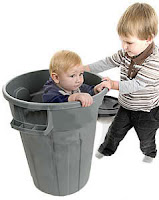 Autism spectrum disorder (ASD) is often an invisible disorder. Because it is so subtle, it can go undetected. It is very likely that there many adults on the autism spectrum living and working in your community who are un-diagnosed.
Autism spectrum disorder (ASD) is often an invisible disorder. Because it is so subtle, it can go undetected. It is very likely that there many adults on the autism spectrum living and working in your community who are un-diagnosed.It is hypothesized that certain types of individuals with “ASD-like” traits (e.g., smart, but antisocial) attract one another, leading to such couples having kids with the same traits – but magnified due to an overload of genes. It is estimated that the disorder correlates with a genetic component more apparent than other disorders.
About 33% of fathers of kids with ASD show signs of the disorder themselves – and there appear to be maternal connections as well. This information increases the likelihood that it may be present in your own family. Think about your youngster's lineage. Are there - or were there - brilliant and creative, but blatantly eccentric, family members?
Depending on your personality and the strength of your coping skills, this may be either a relieving or a disturbing revelation to ponder. If the diagnosis is received with a negative outlook, you may slip into a period of guilt or self-condemnation. You may even find yourself unjustly bearing the brunt of blame induced by your partner.
Moms and dads of kids on the autism spectrum do tend to reflect more stress tied to anxiety and depression when compared with moms and dads of neurotypical (i.e., non-autistic) kids. But never forget that the disorder is a naturally occurring phenomenon – and it is no one's fault. So, avoid believing pessimistic, self-defeating “autism stereotypes” in favor of focusing on the positives associated with this challenge.
Moms and dads of kids on the autism spectrum do tend to reflect more stress tied to anxiety and depression when compared with moms and dads of neurotypical (i.e., non-autistic) kids. But never forget that the disorder is a naturally occurring phenomenon – and it is no one's fault. So, avoid believing pessimistic, self-defeating “autism stereotypes” in favor of focusing on the positives associated with this challenge.
One father reported that learning of his son’s diagnosis was “liberating,” because it wasn't until then that he realized he, too, had the disorder. He defined the experience as “reaching the end of a race to be normal.” At long last, he came to a point of acceptance, and was now in a position to voice his “quirks” using the framework of ASD. This father’s journey was challenging, but fortunately, his wife was very supportive throughout. However, not all families deal the experience of uncovering the disorder in themselves as well as this.
There are married couples that simply don’t do well under real (or perceived) pressures of raising a youngster with a different way of being. Families of kids on the spectrum are no exception. Educate and inform yourself - and your husband or wife - early on. Connecting with other moms and dads in similar situations can help cast out destructive, stigmatizing myths and stereotypes.
If your child has been diagnosed with ASD, and you suspect that you or your partner also has the disorder, consider the following suggestions:
- Arm yourself with knowledge and gather as much information as you can from the Internet or the resources.
- Avoid the “blame game” (e.g., “It's your fault our son is this way.”).
- Avoid the “guilt game” (e.g., “It must be my fault.”).
- Because you are both still assimilating your youngster's experience, allow yourself and your partner time to process this new twist on the situation.
- Broach the subject with your partner by asking leading questions that will provide opportunity for reflection (e.g., “Do you think our son gets his love of history from your side of the family or mine?”).
- Discuss marriage counseling or other professional supports with your partner.
- Offer to research the disorder with your partner or to provide your partner with whatever literature you've already gathered.
- The conversations you have about it in the family should build slowly and incrementally.
Understanding ASD as a probability for you and your partner will be a learning experience for the both of you. It can create marital stress and chaos, or it can be an opportunity to strengthen and enhance your relationship. It’s your choice!
As one parent stated, "How interesting. My husband and I have agreed that we share a preponderance of traits and that is probably what attracted us to each other. Thankfully, we view our son's difference as a positive. I love that he is only seven and has taught me about the history of World War II. He is definitely a challenge, but we love him for who he is and not is spite of it."
As one parent stated, "How interesting. My husband and I have agreed that we share a preponderance of traits and that is probably what attracted us to each other. Thankfully, we view our son's difference as a positive. I love that he is only seven and has taught me about the history of World War II. He is definitely a challenge, but we love him for who he is and not is spite of it."
Resources for parents of children and teens on the autism spectrum:
==> How to Prevent Meltdowns and Tantrums in Children with Autism Spectrum Disorder
==> Parenting System that Reduces Defiant Behavior in Teens with Autism Spectrum Disorder
==> Launching Adult Children with Autism Spectrum Disorder: Guide for Parents Who Want to Promote Self-Reliance
==> Teaching Social-Skills and Emotion-Management to Children with Autism Spectrum Disorder
==> Parenting Children and Teens with High-Functioning Autism: Parents' Comprehensive Handbook
==> Unraveling the Mystery Behind High-Functioning Autism: Audio Book
==> Crucial Research-Based Parenting Strategies for Children and Teens with High-Functioning Autism
==> Parenting System that Reduces Defiant Behavior in Teens with Autism Spectrum Disorder
==> Launching Adult Children with Autism Spectrum Disorder: Guide for Parents Who Want to Promote Self-Reliance
==> Teaching Social-Skills and Emotion-Management to Children with Autism Spectrum Disorder
==> Parenting Children and Teens with High-Functioning Autism: Parents' Comprehensive Handbook
==> Unraveling the Mystery Behind High-Functioning Autism: Audio Book
==> Crucial Research-Based Parenting Strategies for Children and Teens with High-Functioning Autism



.jpg)


